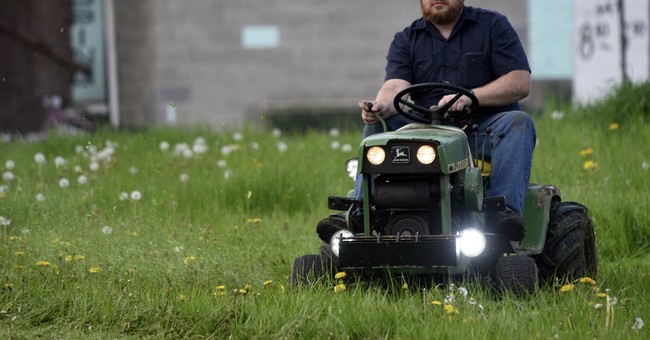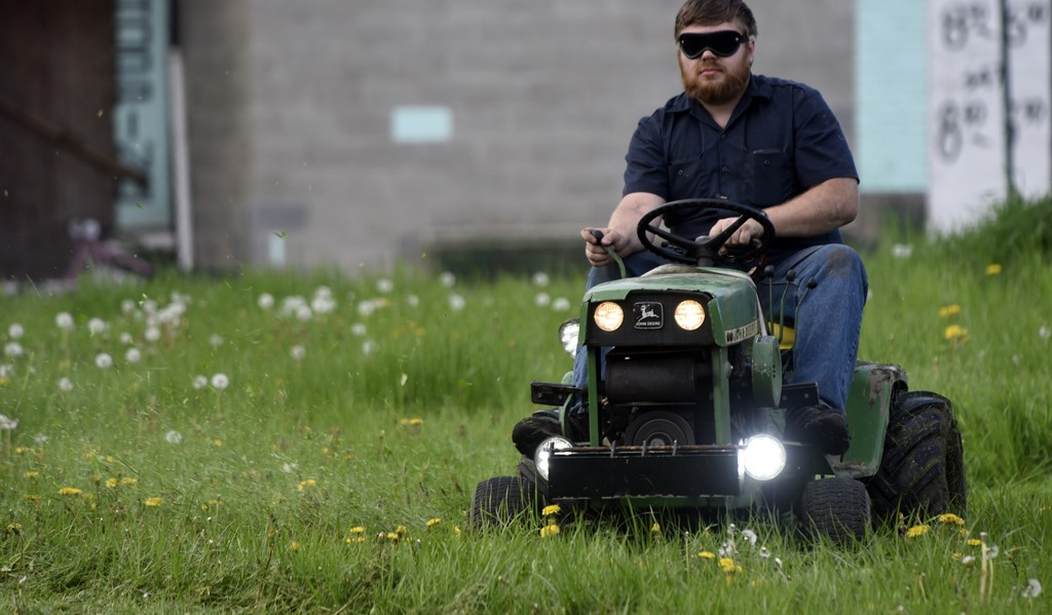
Well, there it is. Everything else is racist. Why not your yard?
While we look at our yards as playgrounds for our kids, family picnics, and other frivolous activities, the time has come to ask ourselves a socially-conscious question: Is it time to decolonize our lawns? You know, given that we’re descendants of “racist colonists” and all.
As insane as this sounds — a lot of stuff sounds insane in 2020 — The Globe and Mail, Canada’s largest newspaper, recently ran a legit article titled Is It Time to Decolonize Your Lawn?
The article reads:
[T]he traditional lawn – manicured, verdant, under control – now finds itself at the confluence of two hot-button issues: climate change and Indigenous rights. Some environmentalists, First Nations leaders and even hobby gardeners are calling for a different approach to how we view and treat the ubiquitous urban green space.
It is, they argue, a lasting symbol of how settlers appropriated Indigenous land and culture. And the rigid Western ideal we have imposed continues to hurt the planet and, in turn, all of us. The lawn, some go as far to say, needs to be decolonized.
Again, there it is, right off the bat. Your yard is contributing to climate change — aka: “global warming” — and “racist,” because it sits on land “appropriated” — stolen — from indigenous peoples.
Is it time to decolonize your lawn? – The Globe and Mail
I knew it, I knew mowing my lawn was racist https://t.co/TxPb5BQ9iL
— Caleb Hamer (@HawkeyeHamer) September 18, 2020
The article quotes John Douglas Belshaw, a Canadian history professor at Thompson Rivers University in Kamloops, B.C., who asks: “What is a lawn but a statement of control over nature?”
“That’s a huge part of settler culture. You see that river there? We can dam that. We can organize that water, we can make that water work for us. It’s essentially the same mindset. I can reorganize this landscape, flatten it, plant lawn, find a non-indigenous species of plant, of grass, and completely extract anything that’s not homogenous, that doesn’t fit with this green pattern and control it … A backyard with a big lawn is like a classroom for colonialism and environmental hostility.”
“A backyard with a big lawn is like a classroom for colonialism and environmental hostility.” Who knew?
Belshaw launched into a history of lawns, identifying another culprit: evil rich people.
“Lawns were not a popular thing in North America until the late 19th century and they’d become popular in part because immigrants were bringing European traditions of some manicured lawn. Manicured lawns were very much associated with wealth.”
Jayce Chiblow, community engagement lead with Indigenous Climate Action and a member of the Garden River First Nation, agrees with Belshaw, but is even more whacked out. Chiblow not only opposes private property ownership but also believes plants are “our relatives.”
“Where the lawns come from is from the property ownership mentality, that we can own property.
“Our teaching is that [plants] are our relatives and that we belong to the land. It’s an entirely different concept.”
So how can we right this horrific wrong?
How can we achieve botanical justice? In a word, weeds. According to Dan Kraus, a senior conservation biologist at the Nature Conservancy of Canada — who compares plants to people — that is.
“Arguably, in our urban areas, it [the lawn] is kind of the largest ecosystem. These unknown plants that you think are all weeds but when you actually get to know them, they have their own stories and are as wonderful as any other plants.”
And of course, you can’t get to know your weeds if you keep killing them with chemicals and chopping them up with your lawnmower, now, can you? Easy solution, according to Christopher J. Watson, a postdoctoral researcher from University of Quebec at Trois-Rivières.
“If you want to reduce the number of weeds, reduce the amount of white grubs, and increase the beneficial insects like pollinators, simply don’t mow your lawn as much.”
Louise Hénault-Ethier, science project manager at the David Suzuki Foundation, says lawns are a way for people to prove that they have their life and property under control and in order.
“If we can instead start to view long grass and wildflowers as positive things to have in our yards,” she says, “then we will also begin to promote positive change for our ecosystems.”
In the end — literally, as it relates the article — it’s all about “diversity.” Of course, it is. Quoting Kraus:
“It is a cultural thing. here is this interesting comparison, like valuing diversity versus sameness. I do wonder if maybe future generations are going to look back, just like 150 years ago, when Victorian ladies used to like to wear dead birds as hats, and […] say: Why, why did you do that?”
The obvious question begs to be asked. Do #AllLawnsMatter?














Join the conversation as a VIP Member